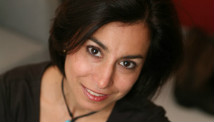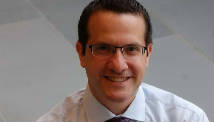Let's finally bury this idea that women can't be funny once and for all. Fey and Poehler were undeniably hilarious throughout the Globes, so much so that many fans on Twitter demanded more of them during the ceremony. From their opening bit -- Poehler: "Meryl Streep is not here tonight, she has the flu. And I hear she's amazing in it." -- to their pseudo drunk heckling of best TV comedy actress winner Lena Dunham, they were radiant, energetic, and above all, funny. More please.
Foster made her acceptance of the Cecil B. DeMille lifetime achievement award a coming out, of sorts. She first shocked the audience by leading them to think that she was about to make a huge public statement about her sexuality. Instead, she said she was single, adding "I already did my coming out in the stone age."
"Now, apparently, I'm told that every celebrity is expected to honor the details of their private life with a press conference ... You guys might be surprised, but I'm not Honey Boo Boo child," she said, to a flurry of laughter and applause.
"If you had been a public figure from the time that you were a toddler ... then maybe you too might value privacy above all else," she said. "Privacy."
But Foster did specifically thank her ex-partner Cydney Bernard, with whom she has two kids. Both boys gestured to her from the audience.
She also implied that she was retiring from acting when she said she would not be returning to the Globes stage or any stage. "It's just that from now on, I may be holding a different talking stick," Foster said, bringing many in the audience to tears.
But backstage, Foster clarified to reporters that she was not retiring from acting. "Oh that's so funny," she responded to reporters. "You couldn't drag me away. And I'd like to be directing tomorrow."
It takes a lot to make Hollywood star struck. Bill Clinton did it when he strutted on stage to introduce a clip of "Lincoln," which was up for best drama. He brought the crowd of A-listers to its feet and commended the 16th president. "We're all here tonight because he did it," he said of Lincoln's battle to end slavery.
If there was any doubt that Lena Dunham wasn't Hollywood's next big thing, it was obliterated Sunday night. The star and creator of HBO's "Girls" went home with two awards, best actress in a TV comedy and best TV comedy. Her heartfelt acceptance speech for best actress struck a chord: "This award is for everyone who feels like there wasn't a place for her," she said. "This show made a space for me."
Jessica Chastain won the Globe for best actress in a drama for "Zero Dark Thirty." She offered a moving tribute to director Kathryn Bigelow, the first woman to win a best director Oscar who failed to get a nomination for that award this year, though "ZDT" was up for a slew of other awards, including best picture. "I can't help but compare my character of Maya to you," Chastain said to Bigelow. "When you make a film that allows your character to disobey the conventions of Hollywood, you've done more for women in cinema than you take credit for."
Blame it on nerves, the spirit of spontaneity, or the a-a-a-a-alcohol (apologies to Jamie Foxx), but Jennifer Lawrence's acceptance speech was a tad insulting to a Hollywood icon, if totally hilarious. "Oh what does it say?" she asked, looking at her trophy. "I beat Meryl." She meant Meryl Streep, who was also up for the award.













